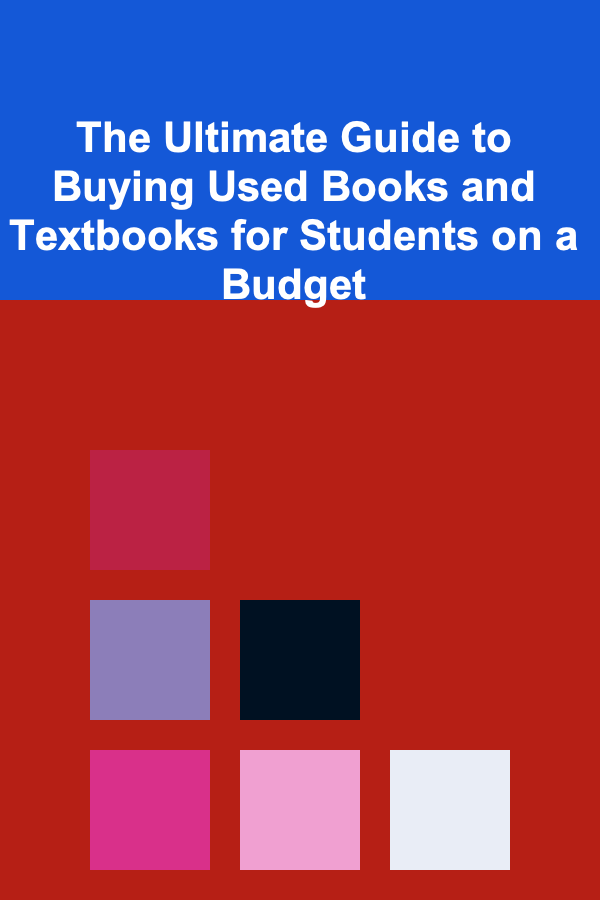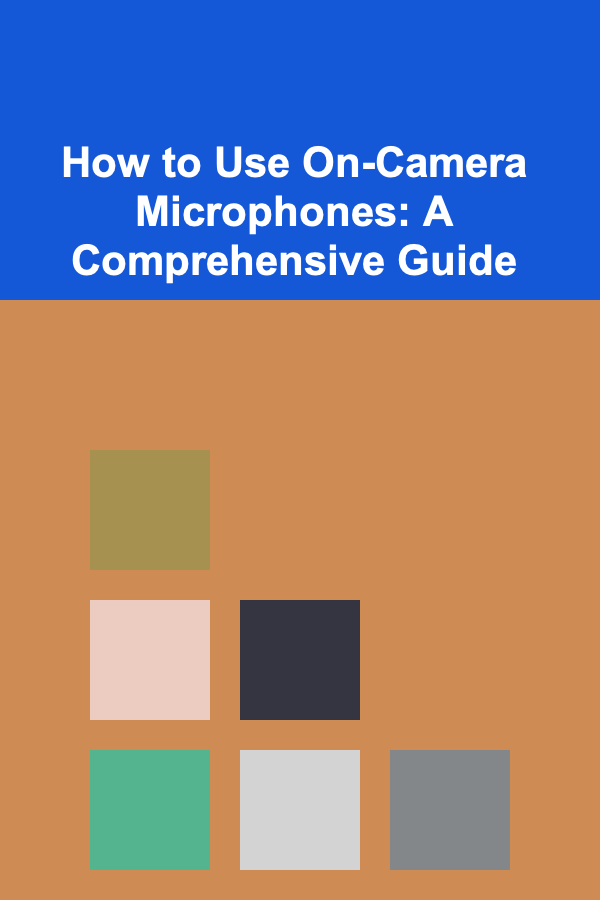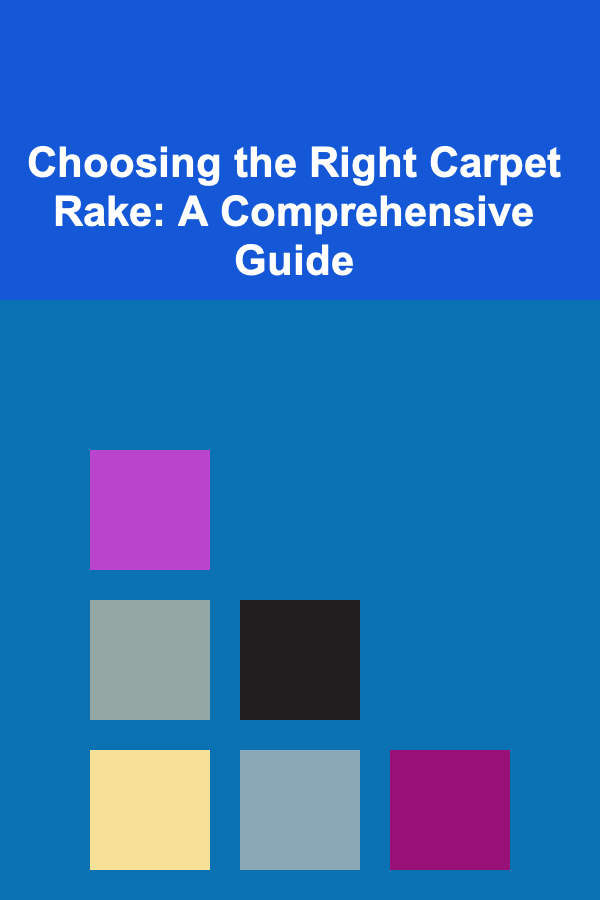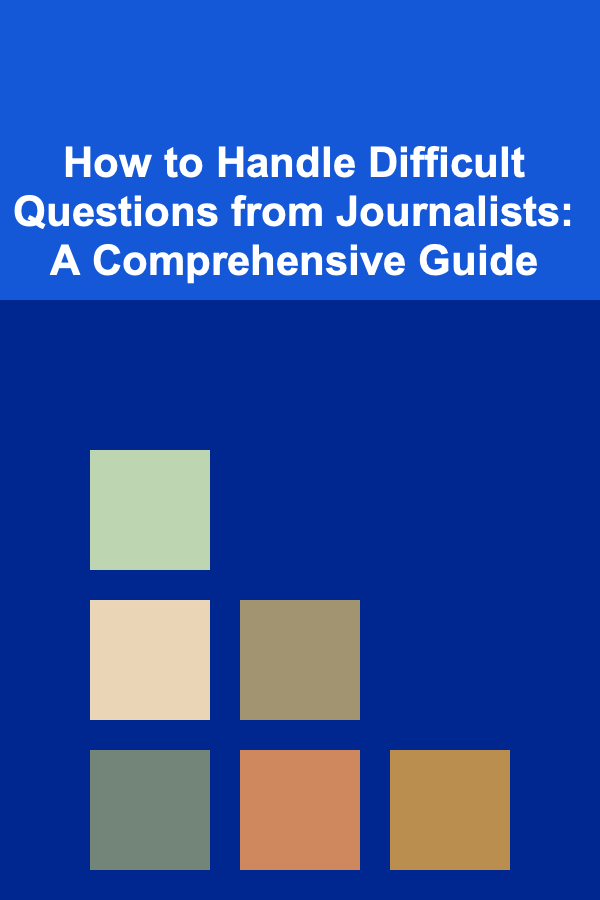
The Ultimate Guide to Buying Used Books and Textbooks for Students on a Budget
ebook include PDF & Audio bundle (Micro Guide)
$12.99$5.99
Limited Time Offer! Order within the next:

As a student, managing finances while juggling academic responsibilities can feel like a tightrope walk. Among the various expenses that pile up throughout the semester, textbooks can be one of the most significant financial burdens. However, there's a smart solution to alleviate the stress: buying used books. Not only do they save you money, but they also offer an environmentally-friendly alternative to purchasing new, often expensive textbooks.
In this guide, we'll explore everything you need to know about buying used books and textbooks, from where to find the best deals to how to ensure you're getting quality books at a fraction of the cost. Let's dive in!
Why Buy Used Books?
Before we dive into how to find used books, it's worth addressing why it's such a great choice for students on a budget. Here are some of the key reasons why buying used books is a smart move:
a. Cost Savings
The most obvious benefit of buying used books is the cost savings. Used books are typically priced anywhere from 25% to 75% less than their new counterparts. For textbooks, which can often cost over $100 each, the savings can add up quickly over the course of a semester.
b. Environmental Benefits
By purchasing used books, you're contributing to sustainability. Reusing textbooks instead of buying new ones reduces waste and minimizes the demand for new resources to produce books. This is an easy way to make an eco-friendly impact, even while managing your student finances.
c. Better for Your Budget
As a student, budget constraints are common. Textbooks can eat up a significant portion of your tuition fees, so choosing used books allows you to allocate your money toward other essential needs like housing, food, or even entertainment, making student life more manageable financially.
d. Opportunities for Resale
Another advantage of used books is the ability to resell them after the semester ends. Depending on your course of study, you might be able to sell textbooks back to bookstores, or you could opt to sell them directly to other students who are in need.
Where to Find Used Books
Now that we've established the benefits, let's dive into where to find used books and textbooks. There are plenty of options, both online and offline, and you might be surprised at how many places you can explore.
a. Online Marketplaces
Online platforms have become one of the most popular ways to purchase used books, offering a vast array of options from independent sellers, secondhand bookstores, and even students like yourself. Here are some of the top online marketplaces:
1. Amazon
Amazon is an incredibly popular choice for students looking for both new and used textbooks. You can find a variety of used books at competitive prices, often with the option to rent them as well. Reviews and ratings can help you make an informed decision before purchasing.
2. eBay
eBay is another excellent place to hunt for used textbooks. You can find great deals on books from sellers across the globe. Bidding on textbooks through eBay auctions might allow you to snag books at significantly lower prices than fixed-price listings.
3. Chegg
Chegg is an online textbook rental service that allows students to rent used textbooks for a fraction of the cost of purchasing them outright. They also offer the option to buy used books if you prefer to own them. Chegg is also known for its competitive prices and great customer service.
4. ThriftBooks
ThriftBooks is an online bookstore that specializes in selling used books at discounted prices. While it doesn't focus exclusively on textbooks, it offers a large collection of affordable books, including academic and reference texts. The site regularly offers deals, including free shipping on orders over a certain amount.
5. AbeBooks
AbeBooks is a marketplace that connects you with independent sellers of used books, both online and from physical bookstores. It offers textbooks, academic books, and general reading material at lower prices than new books.
b. College and University Bookstores
Many college and university bookstores offer used textbooks for sale, though their prices may not always be as competitive as those online. However, some universities have textbook exchange programs where students can buy and sell used textbooks directly to one another. Keep an eye on bulletin boards or campus newsletters for announcements on these programs.
c. Local Thrift Stores and Secondhand Shops
Local thrift stores and secondhand shops (like Goodwill or local independent bookstores) often have used books, including textbooks, at discounted prices. While you may need to sift through to find the exact textbooks you need, the potential savings make it worth the effort.
d. Facebook Marketplace and Craigslist
Both Facebook Marketplace and Craigslist are great platforms for finding used textbooks directly from other students or local sellers. These platforms allow you to negotiate prices and avoid shipping fees by arranging a local pickup.
e. Textbook-Specific Platforms
Certain websites specialize in connecting students with used textbooks. Websites like BookFinder and CampusBooks allow you to compare prices across multiple sellers to find the best deal on used textbooks.
Tips for Finding the Best Deals
To make sure you're getting the best value for your money when buying used books, here are some practical tips and tricks:
a. Check Multiple Sources
Don't limit yourself to just one platform. Since used book prices can vary widely across different websites, it's wise to check multiple sources before making a purchase. Compare prices, shipping fees, and return policies.
b. Look for Editions
Textbooks often have multiple editions, and new editions can be very expensive. Make sure to check if the older editions still cover the material you need for your course. Professors often use older editions with minimal differences, which can be a great way to save money.
c. Consider Renting Instead of Buying
If you don't plan to keep the book after the course is over, renting might be a better option than buying. Many websites like Chegg, Amazon, and others allow you to rent used textbooks for a fraction of the purchase price.
d. Check for Book Condition
When buying used books online, always check the book's condition before purchasing. Many platforms, such as Amazon and AbeBooks, provide detailed descriptions of a book's condition, including whether there are any markings, highlighting, or torn pages. Avoid books with significant damage unless you're getting a steep discount.
e. Pay Attention to Shipping Costs
When calculating the overall cost of your used book purchase, factor in shipping fees. Some platforms offer free shipping for orders over a certain amount, so it might be worth purchasing a few more books or items to maximize savings.
f. Timing Is Key
Try to start looking for used books well before the start of the semester. Waiting until the last minute may leave you with fewer options, and prices may be higher during peak demand periods.
How to Resell Your Used Books
One of the biggest advantages of buying used textbooks is that you can resell them once the semester is over. This helps recoup some of the costs, making it a more sustainable option for students who need to buy textbooks every semester.
a. Resell to Fellow Students
If you know other students who are taking the same course in a future semester, consider selling your used textbooks directly to them. This can often save both you and your peers money.
b. Sell Online
You can list your used textbooks on online platforms like Amazon, eBay, or specialized sites like TextbookRush. Many of these platforms allow you to set your own price, but make sure to factor in any fees or shipping costs when deciding on the selling price.
c. Check Buyback Programs
Some bookstores offer buyback programs, where they will purchase your used textbooks at a fraction of the original price. While this may not yield the highest resale value, it can be a convenient way to get cash back after your course ends.
Conclusion
Buying used books is an excellent way for students to save money while still getting the materials they need for their courses. By exploring multiple sources, comparing prices, and being mindful of the condition and edition of the books, you can ensure you're getting the best deal possible. Plus, the ability to resell your textbooks after the semester provides additional opportunities to save.
With the strategies outlined in this guide, you'll be well-equipped to make smart, budget-conscious choices that allow you to focus more on your studies and less on financial stress. Happy reading, and may your textbooks be affordable!
Reading More From Our Other Websites
- [Organization Tip 101] Why Organizing Your Shoes Can Save Time on Busy Mornings
- [Polymer Clay Modeling Tip 101] From Beginners to Pros: Advanced Conditioning Methods for Specialty Clay Blends
- [Needle Felting Tip 101] Mastering the Art of Realistic Fur: Advanced Needle-Felted Animal Techniques
- [Home Soundproofing 101] How to Create a Peaceful Bedroom with Soundproofing Solutions
- [Organization Tip 101] How to Use Clear Containers for Pet Supply Visibility
- [Home Holiday Decoration 101] How to Use Fabric and Textiles to Add Holiday Spirit to Your Home
- [Biking 101] How to Maintain Your Recumbent Bike for Long-Lasting Performance
- [Organization Tip 101] How to Repurpose Old Furniture for Garage Storage
- [Home Budget Decorating 101] How to Reuse and Repurpose Items to Decorate Your Home
- [Home Rental Property 101] How to Reduce Vacancy Rates for Your Rental Property

Cost-Effective Ways for Saving Money on Home Internet Security Services
Read More
How to Create a Holiday Village Display at Home
Read More
How to Understand the Ocean's Role in Oxygen Production
Read More
How to Use On-Camera Microphones: A Comprehensive Guide
Read More
Choosing the Right Carpet Rake: A Comprehensive Guide
Read More
How to Handle Difficult Questions from Journalists: A Comprehensive Guide
Read MoreOther Products

Cost-Effective Ways for Saving Money on Home Internet Security Services
Read More
How to Create a Holiday Village Display at Home
Read More
How to Understand the Ocean's Role in Oxygen Production
Read More
How to Use On-Camera Microphones: A Comprehensive Guide
Read More
Choosing the Right Carpet Rake: A Comprehensive Guide
Read More